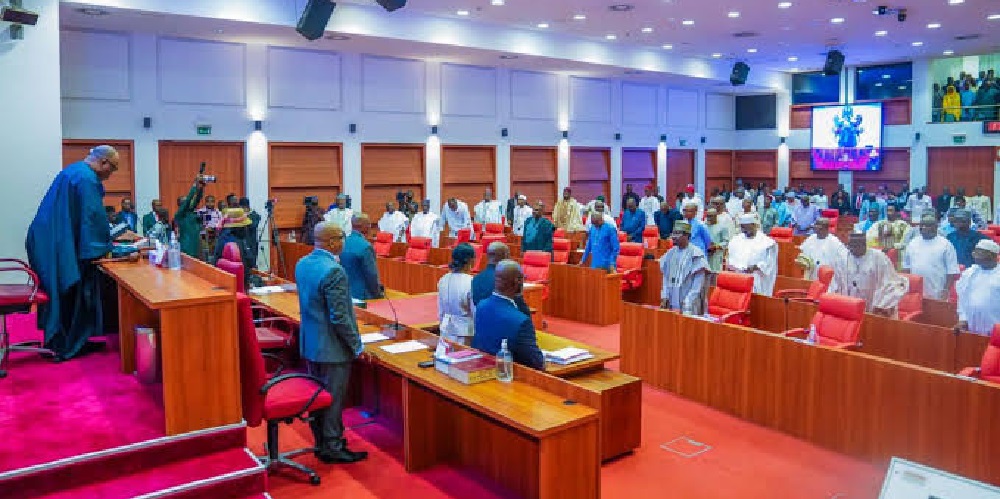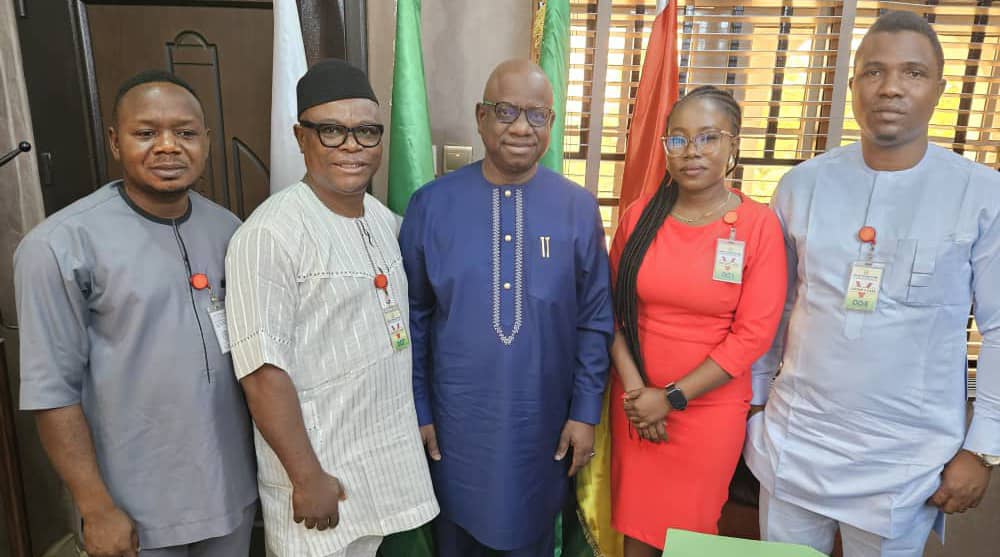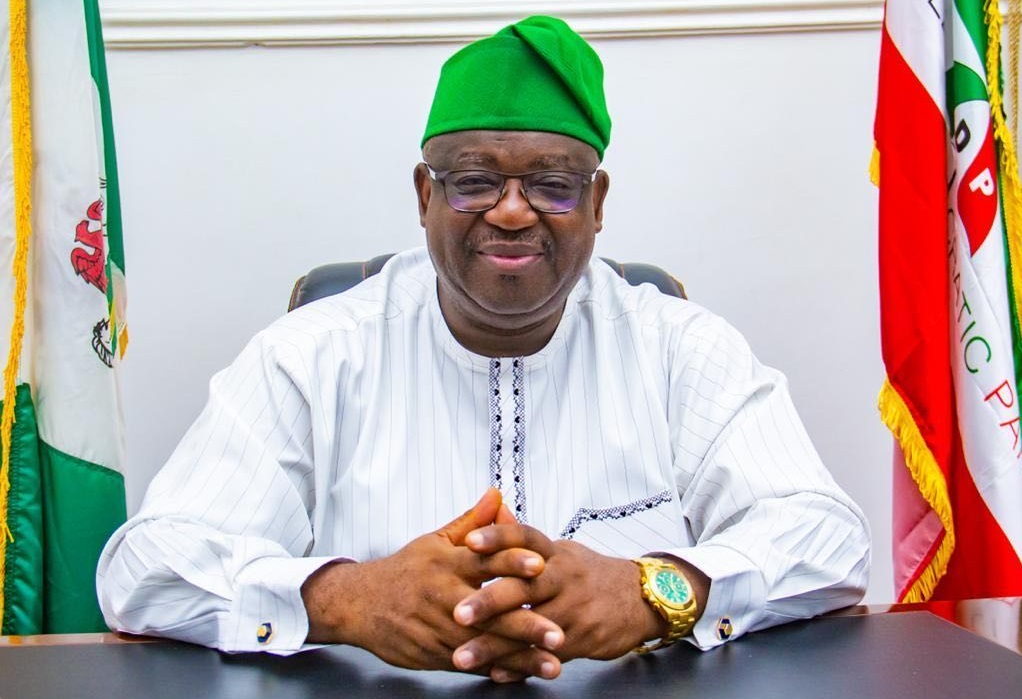News
South-East Lawmakers To Confer with Governors, Constituents Prior to Final Decision on Tax Reform Bills

Senators from Nigeria’s South-East region have decided to engage in further consultations with their state governments, constituents, and other relevant stakeholders before taking a final stance on the contentious tax reform bills currently under consideration in the National Assembly.
The decision, made under the aegis of the South-East Senators’ Forum, reflects the lawmakers’ desire to ensure that their position on the reform bills aligns with the collective interests and concerns of the people they represent. According to Senator Eyinnaya Abaribe, the leader of the caucus, the senators are committed to ensuring that the views of their constituents are considered before any final decisions are made.
Abaribe shared these details during a press briefing on Monday following a closed-door meeting of the South-East Senators at the National Assembly in Abuja. The bills in question—comprising the Nigeria Tax Bill 2024, the Tax Administration Bill, the Nigeria Revenue Service Establishment Bill, and the Joint Revenue Board Establishment Bill—were submitted to the National Assembly by President Bola Tinubu on October 3, 2024. These pieces of legislation are part of a broader effort to overhaul Nigeria’s tax system, with the goal of enhancing revenue generation and addressing inefficiencies in the country’s tax administration.
However, the proposed reforms have generated significant controversy, with opposition to the bills taking on ethnic and sectional tones. Critics argue that the reforms could disproportionately affect certain regions of the country, leading to fears of economic and social imbalances. In light of these concerns, the Senate established a committee to engage with a federal government delegation, led by the Minister of Justice and Attorney General of the Federation, Lateef Fagbemi, to address the criticisms and clarify the provisions of the bills. Unfortunately, the scheduled meeting of the committee last Thursday was postponed due to Fagbemi’s absence.
Commitment to Wider Consultations
While Senator Abaribe and other South-East lawmakers expressed general support for the tax reforms, they underscored the importance of conducting wider consultations to address the specific concerns of the South-East zone. Abaribe emphasized that although the senators were not opposed to the bills, it was crucial to consult with their constituents across the 15 senatorial districts in the region, as well as with state governments and other key stakeholders.
“We are not against the Tax Reform Bills currently before the National Assembly,” Abaribe stated. “However, we believe that broader consultations are necessary to ensure that the bills, when passed, are beneficial and equitable for all Nigerians, including our people in the South-East.”
He further explained that, despite their general support, the South-East senators wanted to ensure that the tax reform framework was equitable and took into account the region’s unique challenges and circumstances. “We have read through the bills, and we are prepared to share our understanding of the reforms with stakeholders in our zone,” he said. “Our objective is to ensure that the final outcome reflects the diverse needs of the country and doesn’t inadvertently marginalize any region.”
Abaribe’s comments underscore the senators’ commitment to making informed decisions that reflect the best interests of their constituents while ensuring that the tax reforms achieve the overarching goal of improving Nigeria’s fiscal health.
Support from Other Regions
The South-East senators’ position on the tax reforms contrasts with the stance taken by senators from the South-South region, who expressed full support for the reforms last Thursday. Senators from the South-South emphasized that, despite the criticisms, the reforms were necessary to strengthen the country’s revenue base and promote long-term economic stability. They also urged Nigerians to avoid making the debate about ethnicity or regional interests, stressing that the focus should be on the national interest.
The South-South senators also cautioned those opposing the reforms to refrain from framing their criticisms in ethnic, regional, or tribal terms. “The tax reform bills are intended to benefit all Nigerians,” they said, “and the opposition should be constructive, not driven by sectional or tribal sentiments.”
Next Steps and Future Outlook
As the debate continues, the South-East senators are expected to consult with various stakeholders, including local government officials, business leaders, and civil society groups, to gauge their opinions on the proposed reforms. The outcome of these consultations will likely influence the senators’ final position when the bills return for further debate in the National Assembly.
In the coming days, as discussions around the bills intensify, the role of the South-East senators will be critical in shaping the final version of the reforms. Their commitment to engaging with their constituents and other stakeholders highlights the importance of ensuring that any major policy changes reflect the interests and needs of the diverse regions of Nigeria.
Ultimately, while the tax reforms hold the potential to address long-standing fiscal challenges in the country, their success will depend on how well they are tailored to accommodate the diverse interests of Nigeria’s varied regions, and whether the necessary consultations are conducted to ensure a fair and balanced outcome for all.
News
Guinea Woos Nigerian Investors to Join $20bn Projects

News
Nigeria’s inflation jumps to 24.23% in March 2025

Nigeria’s headline inflation rate rose to 24.23% in March 2025, according to the official government data source, the Nigeria Bureau of Statistics (NBS).
The rise in the country’s inflation rate, from 23.18% back in February 2025 to 24.23% in March 2025, reflected a major increase in the rising commodity and energy costs in the last few weeks.
According to the March 2025 Consumer Price Index (CPI) Report which measures the inflation rate released by the government agency on Tuesday, the country’s food inflation rate was 21.79% year-on-year in March 2025.
The food inflation rate, however, showed a decrease compared to the food inflation rate of 23.51% recorded in February 2025.
Economists had predicted that the country’s inflation rate which decreased minimally in February would rise when the Dangote Refinery and the state-run NNPCL got entangled in a petrol price war that culminated in the temporary termination of a naira-for crude agreement between the two oil companies and the subsequent increase in the pump price of petrol.
Some observers had also said the minimal reduction in the prices of food commodities experienced earlier in February was not sustainable, attributing the temporary decline in the prices of food to the importation intervention of the Federal Government.
Food and commodity inflation have skyrocketed as Nigerians battle what can pass for the worst cost of living crisis since the country’s independence over six decades ago, a development that economic wizards have attributed to President Bola Tinubu’s twin policies of petrol subsidy removal and unification of the forex rates.
News
Plateau 51: Mutfwang mourns, says “we failed you”, begs affected community

Governor Caleb Mutfwang of Plateau State has apologised to the people of Bassa Local Government Area (LGA) for the failure of government and security agencies to protect lives and properties.
Fifty-one persons were gunned down early Monday in the Zikke community of the LGA, with houses razed and many displaced about two weeks after a similar attack led to the killing of scores of persons in Bokkos Local Government Area.
Less than two days after the most recent assault, Governor Mutfwang apologised for the government’s inability to protect the people.
Fifty-one persons were gunned down early Monday in the Zikke community of the LGA, with houses razed and many displaced about two weeks after a similar attack led to the killing of scores of persons in Bokkos Local Government Area.
Less than two days after the most recent assault, Governor Mutfwang apologised for the government’s inability to protect the people.
The governor said this on Tuesday at the palace of the Paramount Ruler in Miango.
“I will tell you the truth: I have been crying since yesterday because I had trusted God that all the arrangements were put in place, that this will not happen again. We have made investments in security,” he said.
But like all human arrangements, sometimes they fail. I want to admit that on Sunday night into Monday morning, we failed you. Please, forgive me.”
He urged the people not to relent in their efforts to secure their communities and ensure that they complement security agencies’ efforts by providing vital information for intelligence gathering and expose the antics of the criminals.
Governor Mutfwang, in the company of security chiefs and members of the state executive council, was in Zikke community to commiserate with the people on the death of over fifty persons killed in Monday’s attacks.
The Paramount Ruler of Irigwe land, Ronku Aka, who is the Brangwe of Irigwe, urged the government to come to the aid of the communities with the provision of social amenities in the area.
The governor and the entourage also went to see some of the families who lost their loved ones in the attack. The victims have been buried just as members of the community demanded action to stem the rising wave of insecurity in the state.
Plateau State has been a hotbed of attacks, but the renewed spate of attacks adds a fresh layer of twist to the decades-long crisis rocking the North-Central state.
After the most recent assaults, President Bola Tinubu ordered security agencies to fish out the masterminds, describing the attacks as condemnable.
While experts have linked the lingering Plateau crisis to farmers-herders tussle for resources, Governor Muftwang said it was sponsored and genocidal.
According to him, over 64 communities in the state have been taken over by gunmen.
-

 News15 hours ago
News15 hours agoTears, anguish as Plateau Community buries 51 killed by bandits
-

 News15 hours ago
News15 hours agoSHOCKING! One month after giving birth, woman discovers another baby in her womb
-

 News13 hours ago
News13 hours agoCBEX: 60 fraudulent Ponzi scheme operators to avoid in Nigeria
-

 News14 hours ago
News14 hours agoAngry investors raid CBEX office, loot assets in Ibadan after digital Platform crash
-

 News21 hours ago
News21 hours agoPeter Obi speaks as Benue govt. blocks humanitarian visit
-

 News21 hours ago
News21 hours agoFUOYE VC suspended over sexual harassment allegations
-

 Politics14 hours ago
Politics14 hours agoIgbo Youths Set To Mobilize 5 Million Man-March In Support Of Tinubu, Kalu
-

 News14 hours ago
News14 hours ago‘Not something I’d wish on anyone’ — Melinda Gates opens up on divorce


















